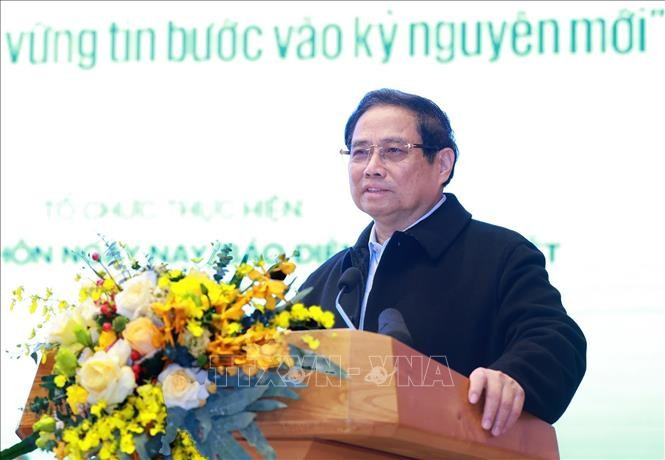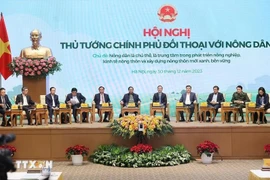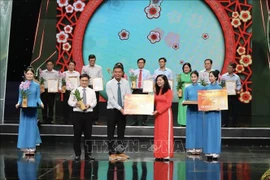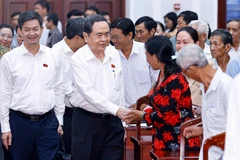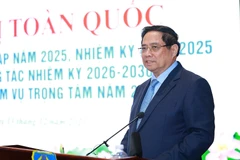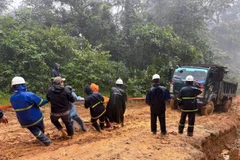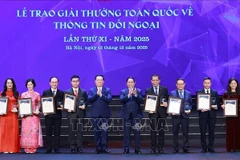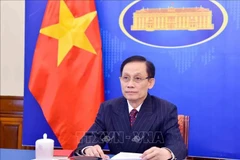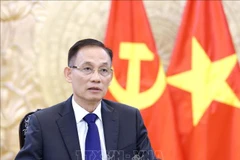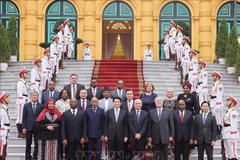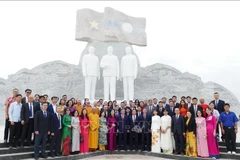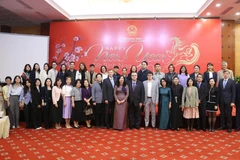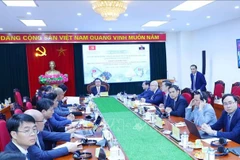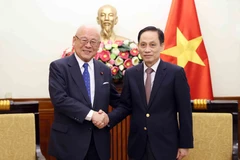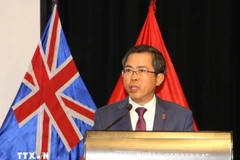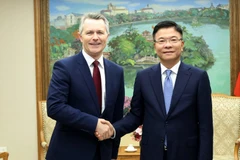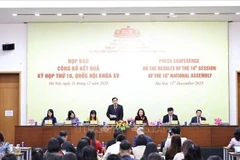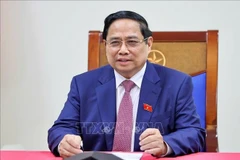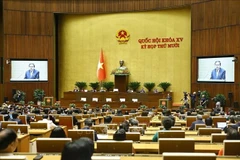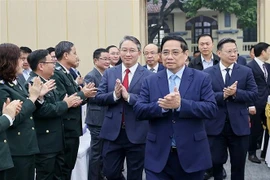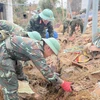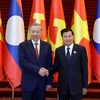Hanoi (VNA) - Prime Minister Pham Minh Chinh committed to continuing to review and perfect mechanisms and policies to promote the development of agriculture, rural areas, and farmers, while chairing a dialogue with farmers on December 31.
PM Chinh briefed participants on policies to address challenges and obstacles in land planning and accumulation, and to encourage the development of concentrated raw material areas and agricultural product processing. He highlighted the importance of credit policies for agriculture, farmers, and rural areas, especially for those affected by the devastating Typhoon Yagi.
As the country is shifting the mindset from agricultural production to agricultural economic development, with a broad and inclusive scope, agriculture cannot stand alone but must be integrated into a broader ecosystem of related industries to foster mutual development, he stressed.
To develop this ecosystem, there is much work to be done, such as land accumulation, the application of science and technology, the improvement of productivity, and the issuance of mechanisms and policies related to credit and taxes, Chinh stated, adding that the Government has issued various policies and directed ministries and sectors to enhance forecasting, expand markets, build plans and policies, and develop infrastructure to promote the growth of agriculture, rural areas, and the welfare of farmers.
Pointing out that the two weaknesses of the agricultural sector are market research and deep processing, the Prime Minister called for greater efforts in these areas, and emphasised the need for better mechanisms and policies to encourage businesses to invest in agriculture, including policies on land, taxes, fees, credit incentives, and workforce training.
At the same time, he stressed the importance of strengthening linkages and partnerships between enterprises and farmers and cooperatives; diversifying markets, products, and supply chains; promoting branding, market research and forecasting, and planning of raw material areas; increasing deep processing; and improving product designs and packaging.
Sharing further on the development of a sustainable agricultural ecosystem, the Government leader stated that this is a global trend, with European countries already setting green production standards for imported products. He emphasised that both businesses and farmers must raise their awareness and take proactive steps to meet these standards in order to boost exports.
The Prime Minister stated that the Party and the State will continue to implement the three strategic breakthroughs of institution building and perfection, infrastructure development, and human resources training, with the aim of boosting the development of agriculture, rural areas, and farmers. At the same time, farmers should also uphold the spirit of self-reliance and unity to work together, win together, and develop together.
This annual dialogue provides a platform for the Government leader to directly listen to the recommendations and proposals from farmers, cooperatives, experts, scientists, and businesses in order to effectively implement the Party's and the State's guidelines and policies.
This year’s dialogue, held in-person at the Government Office and connected to the People's Committees of all 63 provinces and centrally-run cities, attracted over 4,500 delegates, including more than 2,000 farmers and cooperative representatives.
Ahead of the dialogue, the Vietnam Farmers' Union Central Committee organised multiple channels to gather questions, opinions, and suggestions from farmers, cooperatives, experts, scientists, and businesses in the agriculture and rural development sector. As a result, nearly 3,000 submissions were received, covering a wide range of issues related to agriculture, rural development, and the needs of farmers.
In 2024, agriculture has grown by 3.3%, surpassing the set target. The export turnover of agricultural, forestry, and fishery products is expected to exceed 62.5 billion USD, an increase of 18.7% year-on-year, with a trade surplus of 18 billion USD, accounting for more than 70% of the country's total trade surplus. Vietnamese agricultural products are present in 190 countries worldwide, and rice production alone ensures food security and generates over 5 billion USD in export revenue./.
